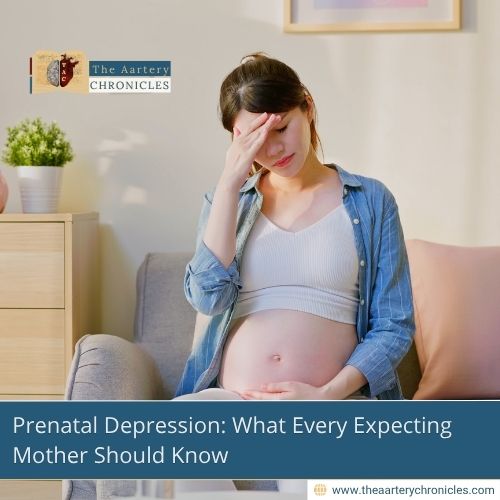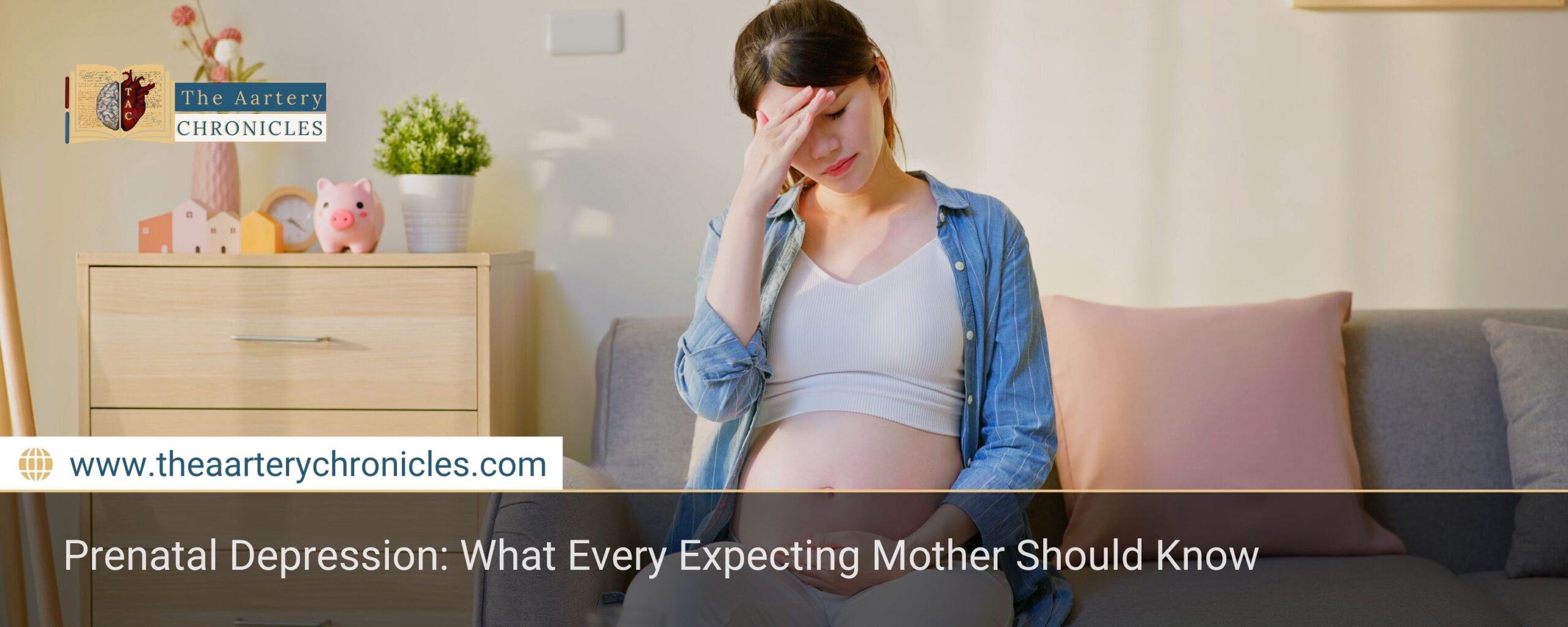

Prenatal Depression: What Every Expecting Mother Should Know
Introduction
Depression during pregnancy is an often overlooked condition that can affect many women during pregnancy. While pregnancy is generally seen as a time of great joy and anticipation, for some women it can be accompanied by feelings of anxiety, profound sadness, and isolation. It is important to recognize and address the symptoms of depression during pregnancy promptly, as this condition can have negative effects on both the mother and the baby. Depression during pregnancy can be caused by several factors, including hormonal changes, psychological stress, concerns about motherhood, or previous experiences of depression. In this article, we will explore the symptoms, causes, and possible treatment strategies to help women manage this condition during one of the most delicate times of their lives.
Symptoms Of Depression During Pregnancy
Symptoms of depression during pregnancy can range from mild to severe, impacting the mother-to-be’s emotional and physical well-being. Some of the most common symptoms include:
- Persistent sadness or feeling of emptiness.
- Loss of interest or pleasure in daily activities.
- Frequent mood swings and irritability.
- Fatigue and lack of energy, even in the absence of significant physical activity.
- Sleep disturbances, such as insomnia or hypersomnia (sleeping too much).
- Changes in appetite, with significant weight gain or loss.
- Difficulty concentrating or making decisions.
- Intense anxiety about pregnancy, childbirth, or the baby’s health.
- Thoughts of self-harm or suicide (in severe cases).
It’s important not to ignore these symptoms, especially if they persist for more than two weeks. Depression during pregnancy can impair a woman’s ability to care for herself and her baby, increasing the risk of prenatal complications.
Causes
- Personal History Of Depression: Women who have experienced depression in the past, or who have a family history of depression, are more at risk of developing depression during pregnancy. Previous experiences of postpartum depression can also increase the risk of depression during pregnancy.
- Psychological Stress Factors: Pregnancy is a time of significant change in a woman’s life. Concerns about the baby’s health, a changing body, and managing family and professional responsibilities can cause increased stress. Events such as relationship problems, financial difficulties, or unplanned pregnancies can increase the risk of depression.
- Social Isolation: Social isolation or a lack of emotional support from friends, family, or a partner can contribute to the onset of depression during pregnancy. Women who lack an adequate support system may feel alone and overwhelmed by the responsibilities and uncertainties of pregnancy.
- Biological Factors: Some women may develop depression during pregnancy due to biological factors, such as thyroid disorders or nutritional deficiencies (e.g., low levels of vitamin D or folic acid), which affect mood and mental well-being.
How To Deal With Depression During Pregnancy
Psychological Support And Therapy:
Cognitive behavioral therapy ( CBT) is often used to help women manage negative thoughts and behaviors associated with depression. CBT focuses on identifying and modifying distorted thought patterns that may contribute to depression, helping women develop strategies to cope with stress and improve their emotional well-being.
Other forms of psychological support include interpersonal psychotherapy (which helps improve personal relationships) and group therapy, which can offer an emotional support network with other women facing similar situations.
Drugs
In some cases, especially if depression during pregnancy is severe, antidepressant medications may be necessary. However, the use of medications during pregnancy requires careful evaluation by a doctor to balance the benefits to the mother and the potential risks to the fetus. Some antidepressants are considered relatively safe during pregnancy, but the decision to use them should be made with the advice of an experienced healthcare professional.
Lifestyle And Self-Care
Lifestyle changes can help reduce the symptoms of depression during pregnancy. Some helpful strategies include:
- Regular exercise: Physical activity, such as prenatal yoga or walking, can improve mood and reduce anxiety.
- Balanced diet: Maintaining a diet rich in nutrients, such as omega-3 fatty acids and B vitamins, is essential for mental well-being.
- Regular sleep: Try to maintain a stable and restful sleep routine.
- Relaxing activities: Practices such as meditation, deep breathing, or prenatal massage can help reduce stress and improve mood.
Partner And Family Involvement
Emotional support from a partner and family is crucial for women experiencing depression during pregnancy. Creating a compassionate, non-judgmental environment helps the mother-to-be feel more secure and supported. Partner involvement may also include attending doctor appointments or therapy sessions together.
Conclusion
Treating depression during pregnancy is essential not only for the mother’s well-being but also for the healthy development of the baby. Appropriate intervention can reduce the risk of prenatal complications and promote a more peaceful pregnancy.









